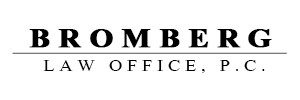Both consumers and creditors have legal responsibilities. Creditors, in the process of collecting a debt over time, have a responsibility to comply with the many regulations concerning debt collection abuse. These regulations pertain to the manner of collection, and disclosures of debt-related information to consumers. As a consumer, you have rights. If those rights are violated, you have legal options including hiring an experienced Debt Defense lawyer. The purpose of this post is to explain the laws governing debt collection, and rights of consumers when those laws are violated.
Debt Collectors Are Subject to the Fair Debt Collection Practices Act
Unfortunately, many debt collectors engage in questionable practices. Because of this, on September 20, 1977, Congress enacted the Fair Debt Collection Practices Act. The act is Congress’s response to its finding that there is widespread evidence of abusive, deceptive, and unfair debt collection practices by debt collectors in the United States. These practices don’t just serve to benefit debt collectors; they also harm consumers in a number of ways. These harms aren’t just financial (e.g. personal bankruptcies). Because dealing with aggressive, illegal debt collection practices can be extremely stressful, they can result in psychological strain, marital instability, and job loss. In finding a correlation between abusive debt collection practices and marital breakdowns and job losses, Congress saw a harm on not just individuals, but on the American economy at large. So, to protect both individuals and the nation’s economy, Congress sought to strengthen laws and procedures designed to protect consumers, rectify injuries caused by abusive collection practices, and hold abusive debt collectors accountable.
What The Fair Debt Collection Practices Act Specifically Prohibits
The Fair Debt Collection Practices Act specifically prohibits abuse by debt collectors, false or misleading representations, and other unfair practices. Examples of prohibited conduct include:
-making telephone calls without disclosing the caller’s identity.
-repeatedly calling a person with the purpose of annoying, abusing, or harassing any person at the number called,
-using obscene language to abuse the person called,
-making threats of violence or criminal acts to harm a person, whether physically, or through reputational or property damage.
False or even merely misleading representations are also prohibited by the Fair Debt Collection Practices Act. Examples include:
-falsely claiming that nonpayment of a debt will result in arrest or imprisonment,
-falsely representing or implying that a debt collector is affiliated or vouched for by the U.S. government or a state government.
Debt Collectors Can Be Sued For Violations Of the FDCPA
The most powerful part of the Fair Debt Collection Practices Act is that it allows individuals to sue debt collectors for violations of the law. If you have been the victim of abusive debt collection practices, reach out to an experienced New York consumer protection attorney. You may be able to recover actual damages suffered, as well as additional damages determined by the Court.
